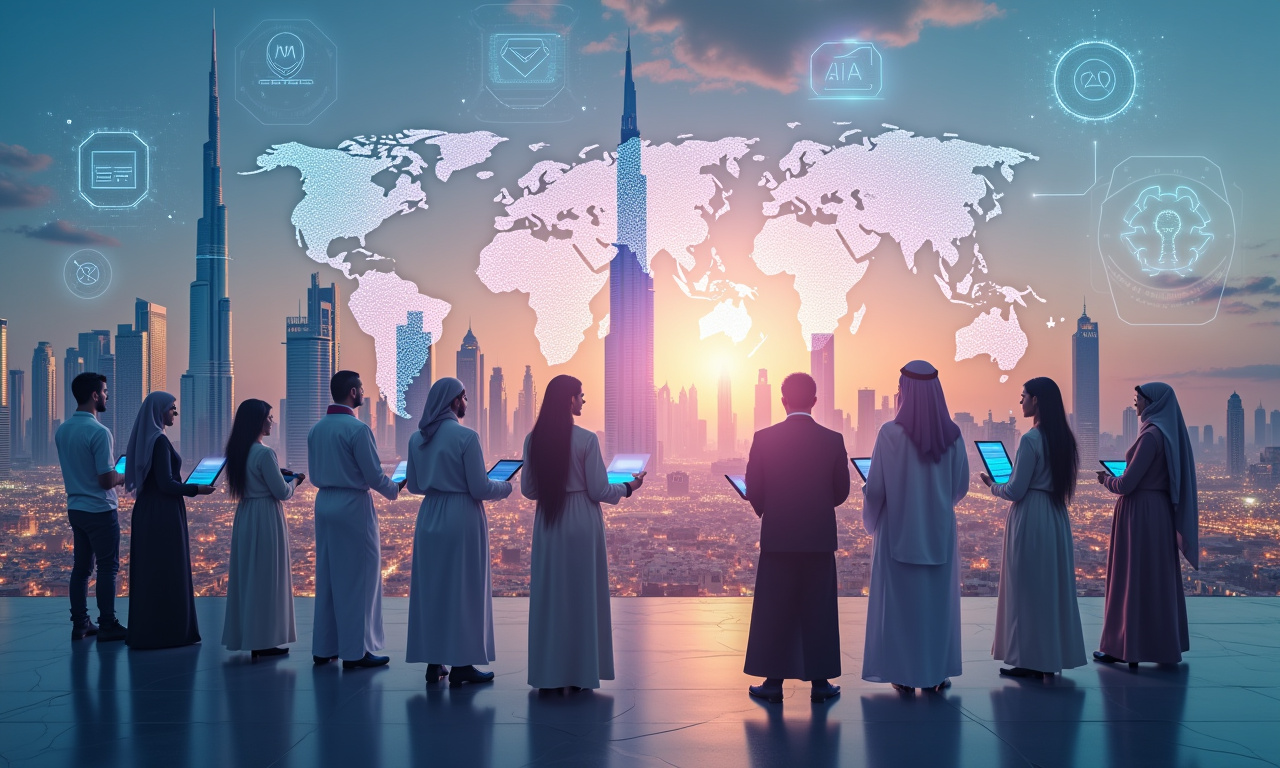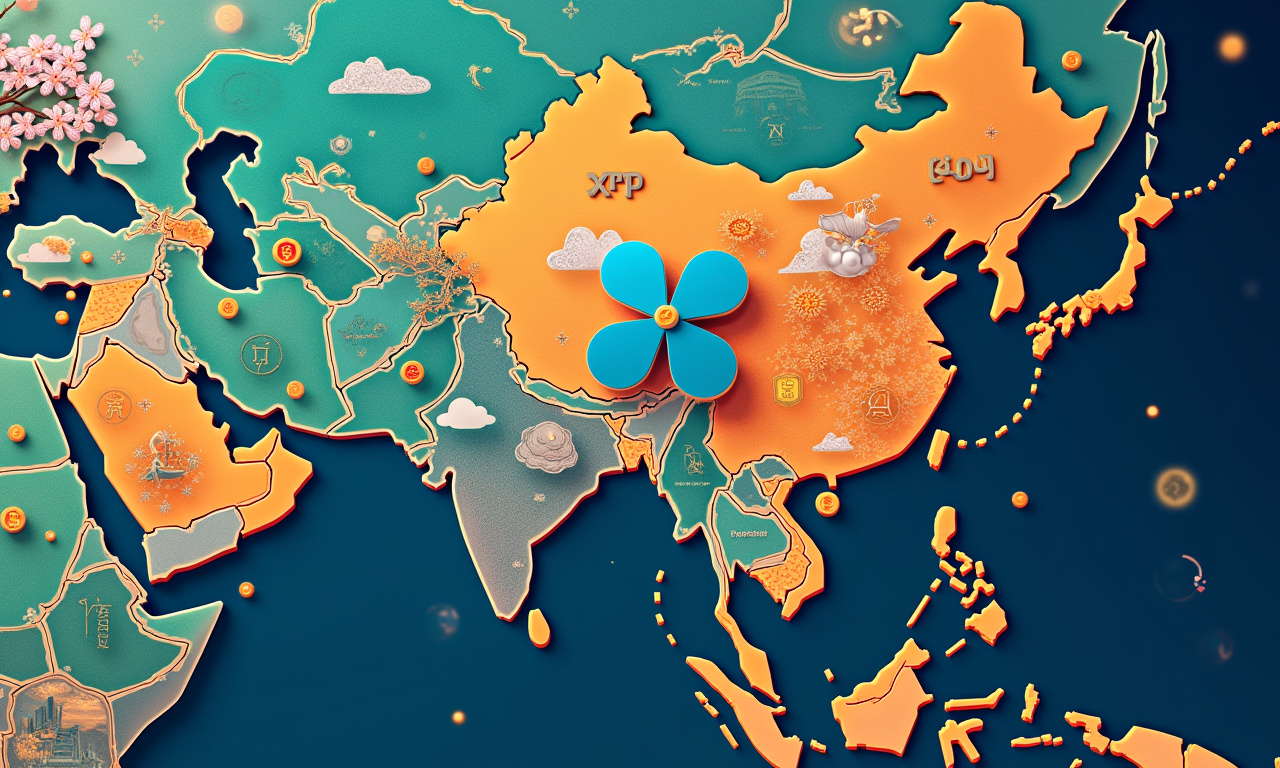
Blockchain's $1 Trillion Secret Weapon? UNDP's Bold Move Unveiled

Liu Wenjing
Can blockchain truly be the answer to some of the world’s toughest challenges? How the money gets spent is of course the multi-trillion-dollar question still lingering in the air. To address this, UNDP, BGA, and EMURGO Labs are betting big on a new approach. They hope that the answer is a strong yes. This “SDG Blockchain Accelerator” is different from your run of the mill, feel-good initiatives. It has the potential to unlock a remarkable $1 trillion opportunity that’s been lurking in plain sight.
Blockchain: More Than Just Crypto Hype?
We've all heard the promises of blockchain: transparency, efficiency, security. If we’re being frank, most of that discussion focuses on cryptocurrencies and NFTs. What if we turned this technology inward, though, and applied it to solving real-world problems? This is where the UNDP’s shift gets really exciting.
The UN’s Sustainable Development Goals (SDGs) are, in short, one big progress-oriented to-do list for the human race. They're a massive market opportunity. If we’re going to see an end to poverty, hunger, climate change and inequality, we need courageous, creative answers. Through inherent transparency and immutability blockchain technology, driven by data and networks, can unlock new business models and efficiencies.
Here's the unexpected connection: this isn't just about altruism. It's about cold, hard economics. Consider the global supply chain. How much taxpayer value is lost due to inefficiencies, fraud and lack of transparency in the process? The estimates range widely, but we’re easily talking about trillions of dollars. Blockchain produces an unchangeable history of each transaction. Having this capability can significantly mitigate losses and create new value for businesses and consumers alike.
Blockchain technology has the power to transform virtually every industry. It opens new doors for the unbanked, planting the seeds for a more sustainable agricultural future.
UNDP's Global Reach: The X Factor?
The BGA and EMURGO Labs bring the tech expertise, but the UNDP brings something even more valuable: a global network and deep understanding of the challenges facing developing countries. Here’s where the secret weapon comes in.
The UNDP hasn’t simply been dumping cash into any blockchain project that comes along. They’re on the ground building capacity, developing solutions, and cultivating ecosystems. And they strategically leverage their excellent connections to federal and state governments, NGOs and business. This process drives impactful deployment and responsible, long-term scaling of their solutions.
- Capacity Building: Equipping UNDP personnel and partners with the skills needed to develop blockchain solutions.
- Solution Development: Creating and piloting blockchain applications tailored to specific SDG challenges.
- Ecosystem Growth: Fostering collaboration and innovation within the blockchain for good community.
This isn’t really a story about technology. It’s a story about people. The UNDP recognizes that technology alone can’t address today’s complex issues. That’s far from enough. It requires a profound understanding of the social, economic and political context in which these solutions are deployed.
Challenges Ahead: Regulatory and Security Risks?
Let's not get carried away. We know that the road to a blockchain-powered future will be difficult. There are huge challenges continuing that must be met.
- Regulatory Uncertainty: The regulatory landscape for blockchain is still evolving, which creates uncertainty for businesses and investors.
- Security Concerns: Blockchain technology is not immune to security breaches, and the immutability of the ledger means that mistakes can be costly.
- Lack of Technical Expertise: There is a shortage of skilled blockchain developers and engineers, which could hinder the development and deployment of solutions.
- Resistance to Change: Some organizations and individuals may be resistant to adopting blockchain technology, due to concerns about transparency, control, or job security.
These are tangible, technical risks, and they should be addressed. They must not be considered impossible challenges. Through thoughtful planning, strong collaboration and a foundational awareness of security and compliance, these challenges are more than manageable.
The important thing is to cut through the hype and get down to work building things that are practical, scalable, and sustainable. Here is where UNDP’s data-driven approach plays a crucial role. By focusing on evidence-based solutions and measuring impact, they can effectively cut through the hype and make sure that these initiatives are delivering real value.
Bybit's US$1 million commitment to EthicHub, a blockchain platform for smallholder farmers, demonstrates the potential for these initiatives to create tangible benefits for vulnerable communities.
The recent UNDP Brussels Roundtable that convened organizations such as the Ethereum Foundation and Solana Labs. Their involvement underscores the growing momentum behind the idea of using blockchain for social good in Europe.
UNDP’s progressive decision to adopt blockchain technology is a gamble worth making. More than anything else, this is a bet on innovation and collaboration. It recognizes the promise of technology to help us build a more sustainable and equitable tomorrow. It might just be the secret weapon we need to unlock a $1 trillion opportunity and finally make meaningful progress towards achieving the Sustainable Development Goals. Are you ready to join the fight?

